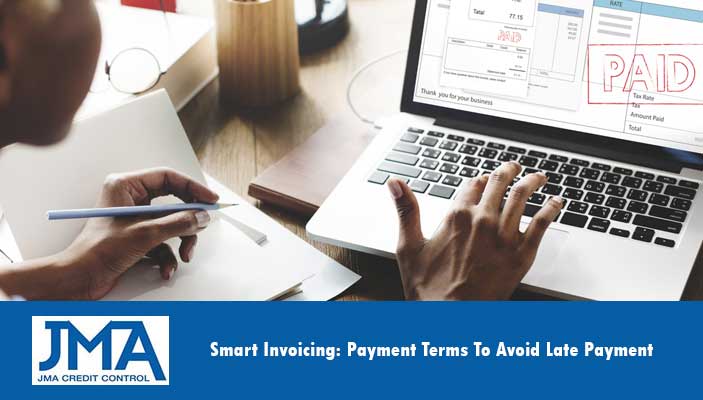
It’s great to have lots of customers and new business coming that is going to bring in increased revenue to your business. But in reality if the invoices to those customers are not getting paid on time it can send your business bust despite how busy you appear to be.
In previous articles I have detailed tips for Reducing Unpaid Invoices. So today I want to dig a little deeper into one very important aspect that is often overlooked by many business owners. And that is having professional & legally binding terms of trade
Professional & Legally Binding Terms Of Trade
Your terms of trade are the agreed terms between you and your customer that protect your business and ensure that cash flow comes into your business when it is expected. This protects you from the embarrassing and potentially business destroying situation where you cannot pay your suppliers, taxes or even employees.
Term Of Trade On Invoices
When you send your invoices you must include clearly written and communicated terms of trade as part of each invoice.
The invoice will tell the customer how much they owe you for the products or service you deliver. The terms of trade will explain when this amount needs to be paid, in what manner and protects your interest in the case of late or non-payment.
What Your Terms Of Trade Must Include
Payment Date
The most important detail in your terms of trade is when payment is due. Invoices that are paid late cost businesses huge amounts of money every year.
But you need to be careful here. Sometimes saying “Payment Due On Receipt” is read as “ When I Get Around To It” and will actually increase the average time it takes for you to get paid. You are much better off putting in a specific date that payment is due so there is no confusion.
“In a recent study by accounting software company XERO, of over 12 Million company invoices showed that on average invoices are paid 2 weeks late. This is definitely something to consider when deciding on your payment terms.”
Of course every business and industry is different. For some NET30 (or longer) payment terms is the industry standard and for others it is immediate payment. But even if your industries standard practice is to offer NET30 terms it doesn’t mean you automatically have to follow suit.
Think about the process of delivering your goods, what payment method is used and how long is a reasonable time it should take to get paid. Then be sure to explain to customers why your shorter payment terms are justified and provide answers to any of their objections.
Fees & Penalties For Late Payment
It’s important to be clear that there will be penalties if payment is not made by the due date. We’ve spoken previously about the best practices for following up late payments.
Things such as interest charges, customer paying costs of following up late payment through a debt collector and also being liable for any legal cost if the matter goes to court should all be covered in your terms of trade.
What Else Should Your Terms Of Trade Include
Your terms of trade are basically a contract between you and your customer so they should cover all details that are relevant to your business transaction.
This can include your policies for:
- Defects and warranties
- Returns and exchanges
- Retention of title, and much more
The importance of your terms of trade cannot be stressed enough, which is why many business owners hire professionals to draft up leally binding terms of trade ensuring their terms are legal, enforceable and encourage fast payment of invoices.





















